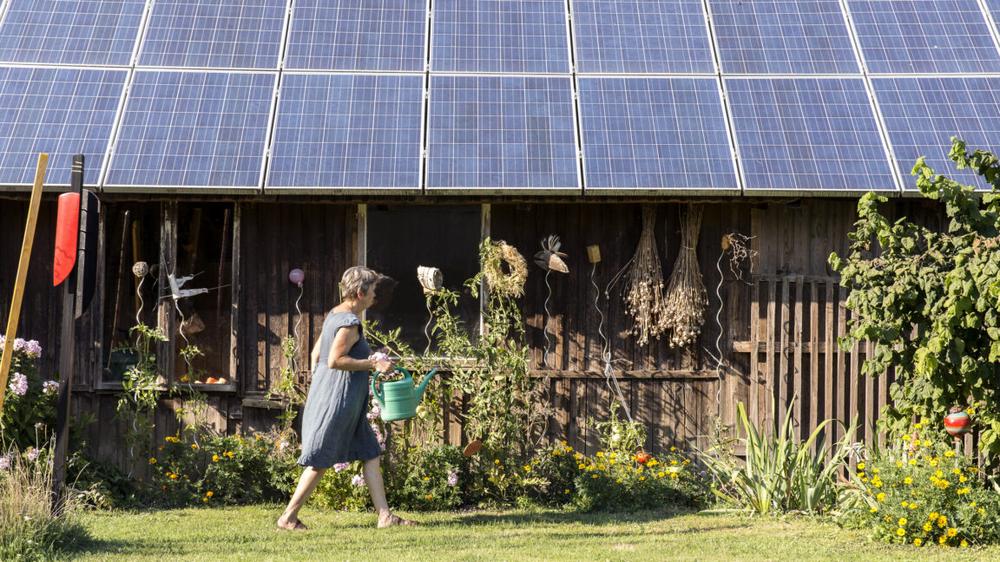The Environmental Protection Agency was sued Wednesday over an allegedly politically motivated decision to end a program that Congress intended to help low-income and disadvantaged communities across the US save money on electricity bills through rooftop and community solar programs.
In their complaint, a group of plaintiffs who would have benefited from the EPA's "Solar for All" program—including a labor union, several businesses, and a homeowner who cannot afford her electricity bills without it—accused the EPA of violating federal law and the Constitution by unlawfully terminating the program.
Solar for All was "expected to save an estimated $350 million annually on energy bills during and after the five-year program, providing energy bill relief for more than 900,000 low-income and disadvantaged households," plaintiffs noted. Additionally, it was "expected to secure 4,000 megawatts of new solar energy over five years and generate 200,000 new jobs."
According to plaintiffs, EPA Administrator Lee Zeldin illegally squashed the program after Congress repealed a statute in July that had sparked the program's creation. However, lawmakers were clear when repealing the statute that only "unobligated" funds could be rescinded, plaintiffs argued, citing lawmakers who "repeatedly" stated that the repeal would not impact funding that had already been awarded.
In 2024, Congress obligated the EPA to award $7 billion in grants to recipients behind projects that would have created "hundreds of thousands of good-paying, high-quality jobs" and spared the average low-income family "about $400 each year on their electricity bills," plaintiffs argued.
Allegedly Zeldin "arbitrarily" decided to ignore the "plain language" of the statute, plaintiffs alleged, waiting a month after the statute's repeal to terminate the Solar for All program in August.
Plaintiffs noted that because Zeldin was distributing funds for weeks after the statute's repeal, this indicated he understood the funding had not been rescinded. They accused Donald Trump's EPA of violating the separation of powers by interfering to block congressionally awarded funds due to Trump's disdain for solar energy—pointing to a Zeldin social media post that claimed that the "EPA no longer has the authority to administer the program or the appropriated funds to keep this boondoggle alive."
In his post, Zeldin further claimed that it was Congress' intent to end the Solar for All program "for good." And since then, the complaint alleged, the "EPA has taken steps to close out grants and claw back obligated funds," forcing layoffs, harming businesses, and setting back clean energy efforts for "states, territories, Tribal governments, municipalities, and nonprofits across the country" intended to benefit from the program.
Alleged harms of EPA’s termination
Disputing this "flawed" statutory interpretation, the group argued that the EPA does have both the funds and the authority to administer the program. In March, Congress appropriated $3 billion to the EPA to sustain its awards, and these funds "remain available," the complaint said.
Several plaintiffs spent substantial time and energy training a workforce to support the program. That includes Solar United Neighbors, which "devoted hundreds of hours" securing sub-awards based on approved funding "that would have provided over $15 million to lead technical assistance, deployment, and implementation of projects in Florida, Texas, and Indiana for their respective state Solar for All programs," the complaint said.
The EPA was aware of these efforts because they were documented in work plans that the EPA approved through the process of awarding funding, plaintiffs argued. And there is no indication that the EPA conducted a "reasoned analysis" to determine how terminating the program would impact Americans. Seemingly the EPA also did not explore any alternative ways to administer the funding beyond canceling the program, plaintiffs argued.
Hoping to keep the Solar for All program on track, the group has asked a jury to declare the program's termination unlawful and issue an injunction requiring the EPA to reinstate the program. They also want the EPA to be enjoined from any future attempts to block the funding.
"According to EPA itself, one hundred percent of Solar for All funding was slated to support the low-income and disadvantaged communities who need it most," the complaint said. And lead plaintiff Rhode Island AFL-CIO argued that there could be other harms that perhaps the Trump administration did not consider.
"The average age of members in Rhode Island’s building trades is approximately 55 years old," the labor union reported, explaining that these members face "a retirement cliff in the coming decade that will create significant problems for its union pension funds as those older union members retire." Looking out for retirees, Rhode Island AFL-CIO invested in Solar for All partly to ensure financial support for retirees' pension funds by training and "retaining the next generation of skilled workers."
Another plaintiff, the Rhode Island Center for Justice, had planned to build on the Solar for All program and "provide a long-term solution to energy insecurity and unaffordability for the low-income households the Center serves."
But since the EPA's termination, the center has pivoted to providing emergency services to prevent electricity shutoffs in low-income households, rather than providing "sustainable solutions, like alternative shutoff protections and payment plans, and contesting rate increases," the complaint said.
That leaves vulnerable Americans, like plaintiff Anh Nguyen, in a precarious position. Nguyen applied for Georgia's no-cost solar program after purchasing a home with electric bills "as high as $500 per month in the summer." Without that program, Nguyen has little hope to reduce her electric bills, as the "upfront cost of solar would be unaffordable," the complaint said.

 Lexar’s new SSD sticks to your iPhone and can survive nearly a 10-foot drop
Lexar’s new SSD sticks to your iPhone and can survive nearly a 10-foot drop